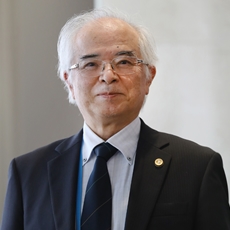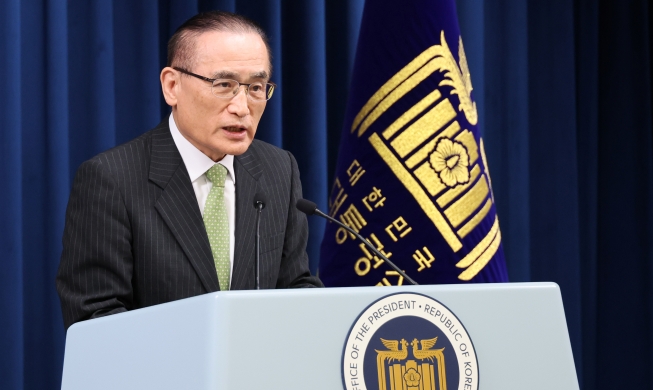
By Etsuro Totsuka
International human rights lawyer
On Aug. 14, 1991, the elderly woman Kim Hak-sun gave the first open testimony on her experience as a "comfort woman," or a female victim of the Japanese military forced into sexual slavery. The victims symbolize women falling prey to violence and violations of human rights during war. Kim's appeal created a sensation that eventually served as the starting point of the "Me Too" movement. She gave courage to many other victims of sexual violence in the world and the international community actively responded to their appeals.
The truth of the Japanese military's comfort women was confirmed by the United Nations (U.N.) Commission on Human Rights in 1993 and the U.N. World Conference on Women in 1995. Under the Rome Statute of the International Criminal Court adopted in 1998, rape, sexual slavery or any other form of sexual violence is defined as a human rights violation and war crime. In 2005, the U.N. General Assembly adopted the resolution titled "The Basic Principles and Guidelines on the Right to a Remedy and Reparation for Victims of Gross Violations of International Human Rights Law and Serious Violations of International Humanitarian Law."
Civic groups briskly launched movements to support the victims and demand that the Japanese government pay reparations. As a representative of the non-governmental organization International Educational Development in 1992, I raised with the U.N. Commission on Human Rights the issue of how the comfort women were sex slaves whose human rights were violated and how Japan violated international conventions and law. Slavery has been prohibited under international law since the era of the League of Nations before World War II. At the time, Asia had no human rights court, so I urged the U.N. to intervene in international disputes between former comfort women and the offending country, Japan.
In 1995, the U.N. Subcommittee on Human Rights said a private fund for the victims launched by the Japanese government was insufficient and asked Tokyo to form an administrative screening agency to resolve the issue. In a report submitted in 1996 to the U.N., then U.N. Special Rapporteur on Violence against Women Radhika Coomaraswamy called the comfort women "sex slaves" and said violations of their human rights and Japan's installation of "military comfort stations" were all against international law. The report also urged Tokyo to take legal responsibility for the victims by apologizing and paying reparations to them.
Movements to accept the U.N.'s recommendations and support the victims also appeared within Japan. Lawyers and civic groups from both Korea and Japan asked the Permanent Court of Arbitration to mediate the issue between the comfort women and the Japanese government. In 2000, Japanese politician Shoji Motooka submitted to the Japanese Diet a bill on helping resolve the issue of women forced into sexual slavery. In the bill, he urged his government to make an official apology over the issue and pay reparations to the victims.
The Japanese government officially acknowledged the comfort women issue. The Kono Statement of 1993 said the comfort women were forcibly mobilized under the lead of the Japanese military and government. A statement by then Japanese Prime Minister Naoto Kan in 2010 also said the conclusion of the Korea-Japan Annexation Treaty was forced and acknowledged the violent nature of Japanese colonial rule of the Korean Peninsula. Yet the Asian Women's Fund and the 2015 Korea-Japan Agreement on the Issue of Comfort Women Victims, two measures used by Japan to compensate the victims instead of actions at the national level, failed to resolve the problem because many of the victims declined to accept.
Twelve former comfort women filed a lawsuit with a Korean court demanding that the Japanese government be held legally responsible. But Tokyo never responded to the suit because of sovereign immunity. Six of the 12 victims have since died.
In January this year, the Seoul Central District Court upheld an earlier verdict in favor of the plaintiffs, ordering the Japanese government to pay KRW 100 million to each of the victims. The court rejected Japan's claim to exemption from responsibility, saying sovereign immunity is inapplicable to inhumane acts by the Japanese government that violate international regulations. This means a remarkable outcome that advances international law, as human rights are guaranteed under U.N. principles. The Japanese government, however, blasted the ruling as a violation of international law.
Three months after the verdict, an opposite result came in a lawsuit against the Japanese government filed by comfort women for similar reasons. In April, the Seoul Central District Court dismissed the suit filed by surviving comfort women, including elderly victim Lee Yong-soo, based on acknowledgement of Japan's sovereign immunity. The plaintiffs rejected the ruling and filed an appeal with a higher court, further complicating the situation.
For the Korean and Japanese governments to quickly resolve the issue through diplomacy, Tokyo must make a heartfelt apology based on the "victim-centered principle." Based on the Kono and Kan statements, Japan must face the facts and historical truths of its colonial rule of Korea. It needs to take responsibility for its occupation and pass on memories of the past and Japan's responsibility to succeeding generations to prevent a recurrence.
But what is the Japanese government's stance now? It never even bothered to respond to such a request, claiming that Korea is violating international law. If this goes on, both countries will not reconcile. Thus we must remember the message to the people of both countries from the joint statement released in 1998 on the New Korea-Japan Partnership Towards the 21st Century by then President Kim Dae-jung and Japanese Prime Minister Keizo Obuchi. Instead of leaving it up to the two governments, we must start serious private-level research to resolve the dispute and spur cooperation toward the establishment and development of a new bilateral partnership.
Etsuro Totsuka is a Japanese human rights lawyer who has actively championed human rights and world peace for more than 40 years. In 1992, he became the first person to raise the issues of Japan's forced labor and sexual slavery with the U.N. Human Rights Committee as a member of the nongovernmental organization International Educational Development.
Translated by Korea.net staff writer Yoon Sojung
